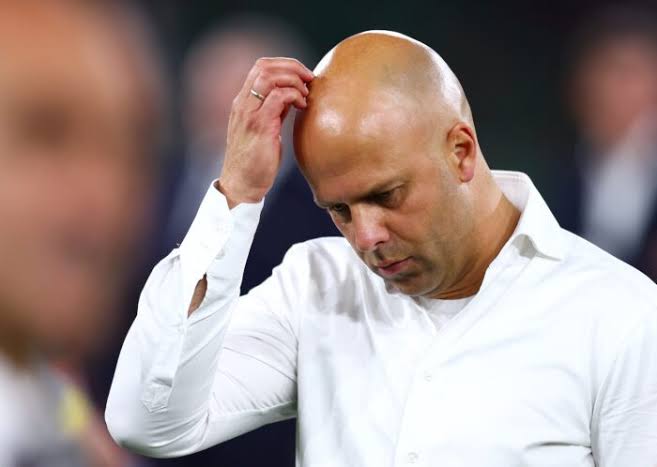Ibrahima Konate’s Uncertain Future at Liverpool: A Comprehensive Analysis

In the whirlwind of modern football’s transfer windows, where speculation swirls like autumn leaves and rumors spread faster than wildfire, it’s often easy to lose sight of the fundamental truths that shape a club’s destiny. Yet beneath the cacophony of conjecture and the relentless churn of transfer gossip, real issues are crystallizing at Liverpool that could fundamentally alter the landscape of their defensive setup for years to come.
As the 2025-26 season has begun to unfold, with Liverpool already having contested friendlies, the Community Shield, and their Premier League opener against Bournemouth, several pressing concerns have rapidly emerged from the shadows to demand immediate attention from manager Arne Slot. Chief among these mounting challenges is the increasingly precarious situation surrounding French center-back Ibrahima Konate, whose future at Anfield has become shrouded in uncertainty and whose current form has raised serious questions about his long-term viability as a cornerstone of Liverpool’s defensive structure.
The 26-year-old defender, once considered an integral part of Liverpool’s future defensive plans, now finds himself at a crossroads that could determine not only his own career trajectory but also Liverpool’s defensive stability for the foreseeable future. The convergence of multiple factors – declining performance levels, contractual uncertainties, and external interest from elite European clubs – has created a perfect storm that threatens to disrupt the carefully constructed defensive partnership that has served Liverpool so well in recent seasons.
The most immediate and visible concern surrounding Konate’s situation has been his disappointing performances on the pitch, which have drawn sharp criticism from some of Liverpool’s most respected former defenders. Jamie Carragher, a legendary figure who spent his entire career marshaling Liverpool’s defense and whose opinions carry significant weight among the Anfield faithful, delivered a scathing assessment of Konate’s display during Liverpool’s 4-2 victory over Bournemouth in their Premier League opener.
Carragher’s criticism was particularly focused on Konate’s role in Bournemouth’s second goal, scored by Antoine Semenyo after an incredible solo run that covered more than 50 yards. The sight of an opposition player running virtually unimpeded through Liverpool’s defensive third before finding the net was deeply troubling, not just for what it revealed about the immediate tactical situation, but for what it suggested about Konate’s current state of mind and positional awareness.
“For Semenyo to run that far and get his shot away is incredible – but where is Konate going?” Carragher questioned, his frustration evident as he analyzed the defender’s positioning and decision-making. “He had a really, really poor night at centre-back. There is definitely a problem that Arne Slot has to solve. People say ‘they need a centre-back’. A centre-back doesn’t fix that. He just takes Konate’s place.”
This assessment was particularly damning because it came from someone who understood the demands and pressures of playing center-back for Liverpool better than almost anyone. Carragher’s suggestion that simply buying another defender wouldn’t solve the problem – that it would merely replace Konate rather than address the underlying issues – highlighted the severity of the concerns surrounding the Frenchman’s current form.
However, the Bournemouth performance was not an isolated incident but rather the latest chapter in what has become a concerning pattern of inconsistent displays. The decline in Konate’s form can be traced back several months, with many observers pointing to his struggles in the Champions League encounter against Paris Saint-Germain as a potential turning point. In that crucial European fixture, Konate’s difficulties in the first leg were compounded by his partial responsibility for the French side’s decisive goal in the return match at Anfield, a moment that seemed to shake his confidence and raise questions about his ability to perform in the highest-pressure situations.
The trajectory of Konate’s performances throughout the latter stages of the 2024-25 season painted a picture of a player gradually losing his way. After ending the previous campaign having fallen behind Jarell Quansah in the defensive pecking order, Konate had initially seemed to respond positively to the challenge. His opportunity for redemption came when Slot made the decision to replace Quansah at half-time during his first match in charge, away at Ipswich Town, giving Konate a chance to reclaim his position in the starting eleven.
For a period, this change seemed to have the desired effect. Konate responded with a series of excellent performances that reminded everyone of his considerable abilities and suggested that he had successfully overcome his temporary dip in form. His displays during this purple patch were characterized by the defensive solidity, pace, and aerial prowess that had originally made him such an attractive proposition when Liverpool signed him from RB Leipzig.
However, this renaissance proved to be frustratingly short-lived. A significant injury sustained during Liverpool’s memorable Champions League victory over Real Madrid – a match that should have represented the pinnacle of his career to that point – forced Konate to spend six weeks on the sidelines. This extended absence proved to be more damaging than initially anticipated, as the defender has struggled to recapture his best form since returning to action.
While Konate’s on-field struggles have been evident for all to see, there is an equally pressing off-field situation that threatens to complicate matters further. The defender now finds himself in the precarious position of entering the final twelve months of his Liverpool contract, a situation that introduces significant uncertainty and potential instability into an already complex scenario.
The importance of contract security in modern football cannot be overstated. For players at the highest level, the knowledge that their future is settled allows them to focus entirely on their performances without the distraction of speculation and uncertainty. Conversely, when a player’s contractual situation remains unresolved, it can create a psychological burden that manifests itself in declining performances and divided loyalties.
In Konate’s case, while there were reports of some progress in contract negotiations earlier in the summer transfer window, these discussions appear to have stalled without reaching a satisfactory resolution for either party. This lack of progress is particularly concerning given the caliber of clubs that are reportedly monitoring the situation with keen interest.
The speculation surrounding Konate’s future became increasingly intrusive toward the end of the previous season, creating an unwelcome distraction during what should have been a crucial period for both player and club. The psychological impact of such uncertainty should not be underestimated, particularly for a player who was already dealing with questions about his form and consistency.
Adding another layer of complexity to the situation is the reported interest from two of European football’s most prestigious clubs: Real Madrid and Paris Saint-Germain. Both institutions represent the absolute pinnacle of the sport and possess the financial resources and global appeal that few players can resist when genuine opportunities arise.
The interest from Real Madrid is particularly intriguing given the Spanish giants’ long-standing policy of targeting the world’s best players regardless of their current contractual situations. The club’s patient approach to player acquisition, combined with their willingness to wait for the right moment to make their move, makes them a formidable adversary in any transfer battle.
Similarly, Paris Saint-Germain’s reported interest adds a compelling dimension to the situation. For Konate, the opportunity to return to his homeland and represent one of France’s most ambitious clubs could prove irresistible, particularly if his relationship with Liverpool continues to be complicated by uncertainty and criticism.
The fact that both clubs are reportedly prepared to wait until Konate becomes a free agent next summer adds significant pressure to Liverpool’s position. The prospect of losing a player of Konate’s caliber for nothing more than a tribunal-determined compensation fee represents a nightmare scenario for any club, particularly one that has invested significantly in the player’s development.
Against this backdrop of uncertainty surrounding Konate’s future, Liverpool’s transfer strategy has begun to reflect a pragmatic recognition that changes may be necessary. The club’s recent activities in the transfer market suggest a proactive approach to addressing potential defensive vulnerabilities before they become critical problems.
The acquisition of 18-year-old Giovanni Leoni from Parma for an initial fee of £26 million represents a significant investment in the club’s defensive future. While Leoni’s youth means he is unlikely to make an immediate impact at the highest level, his signing demonstrates Liverpool’s commitment to building for the long term and ensuring that they have options available as their current defensive core ages.
More immediately relevant to the current situation is Liverpool’s ongoing pursuit of Crystal Palace’s Marc Guehi, England’s established center-back who has proven his credentials at both international and club level. The potential signing of Guehi would represent a significant statement of intent from Liverpool and could fundamentally alter the dynamics of their defensive hierarchy.
Guehi’s profile makes him an intriguing addition to Liverpool’s squad for several reasons. Having captained Crystal Palace to FA Cup glory the previous season, he brings leadership qualities that would be invaluable in Liverpool’s dressing room. His experience in England’s national team setup, combined with his proven ability to perform in high-pressure situations, suggests that he would be capable of making an immediate impact at Anfield.
However, the potential arrival of Guehi also raises important questions about Liverpool’s defensive structure and the role that Konate might play in the future. Unlike a young prospect who might be content to develop gradually, Guehi would arrive at Liverpool with legitimate expectations of challenging for a regular starting position immediately. His pedigree and recent achievements suggest that he would not be content to serve as a backup option or squad player.
This creates a fascinating dynamic within Liverpool’s defensive options. With the experienced Virgil van Dijk still performing at an exceptional level despite being 34 years old, there is essentially one guaranteed starting position available alongside the Dutch captain. The competition for that spot would intensify significantly with Guehi’s arrival, potentially creating a situation where talented defenders find themselves competing for limited opportunities.
The broader context of Liverpool’s defensive planning also needs to be considered. While van Dijk continues to demonstrate his world-class abilities, the reality of football means that Liverpool must begin planning for his eventual decline and replacement. At 34, even a player of van Dijk’s exceptional quality cannot continue indefinitely at the highest level, making the development of long-term successors a critical priority
The situation surrounding Konate’s future extends far beyond the fate of a single player and reflects broader questions about Liverpool’s strategic direction and their ability to maintain their position among European football’s elite. The decisions made regarding Konate’s contract and potential replacement will have ramifications that extend well into the future and could influence the club’s competitive prospects for years to come.
From a financial perspective, the potential loss of Konate without adequate compensation would represent a significant setback for Liverpool’s transfer strategy. The club’s business model relies heavily on maximizing the value of their playing assets, whether through successful sales or long-term contract extensions that protect their investments. Losing a player of Konate’s caliber and potential market value for minimal compensation would be particularly galling given the current inflated state of the transfer market.
The timing of this situation is also problematic from Liverpool’s perspective. The club has already made significant investments in their squad during the current transfer window, including the substantial outlay for Leoni and ongoing negotiations for Guehi. The potential need to find another center-back replacement, either immediately or in the near future, would place additional strain on their financial resources and transfer planning.
Furthermore, the uncertainty surrounding Konate’s situation creates tactical and strategic challenges for manager Arne Slot. The Dutchman is still in the process of implementing his tactical philosophy and building relationships with his squad, making stability in key positions particularly valuable during this transitional period. The prospect of losing a key defender, regardless of current form concerns, would complicate Slot’s planning and potentially disrupt the defensive partnerships he is trying to establish.
The psychological impact on the squad should also not be underestimated. Professional footballers are acutely aware of the business side of the sport and understand that contractual uncertainty can quickly translate into departure. If Konate’s teammates perceive that the club is prepared to allow him to leave without significant effort to retain his services, it could influence their own attitudes toward contract negotiations and long-term commitment to the club.
Liverpool’s history with defensive departures provides valuable context for understanding the potential implications of Konate’s situation. The club has experienced both successful transitions and costly mistakes when dealing with key defensive players, offering lessons that could inform their current decision-making process.
The departure of Virgil van Dijk’s previous long-term partner, Joel Matip, at the end of his contract demonstrated both the challenges and opportunities that can arise from such situations. While Matip’s departure was handled relatively smoothly due to adequate preparation and replacement planning, it also highlighted the importance of maintaining continuity in defensive partnerships whenever possible.
Conversely, Liverpool’s experiences with other defensive departures have occasionally been less successful, particularly when departures were not adequately planned or when suitable replacements were not identified in advance. These historical experiences underscore the importance of proactive planning and the dangers of allowing contractual situations to drift without resolution.
The successful integration of previous defensive signings also provides encouraging precedents for how new arrivals might be accommodated. Liverpool’s track record in this area has generally been positive, suggesting that players like Guehi could be successfully integrated into the club’s tactical systems and cultural environment.
An often-overlooked aspect of Konate’s situation is the international dimension and how his experiences with the French national team might influence his thinking about his club future. International football provides players with additional perspectives on their careers and can sometimes highlight deficiencies or opportunities that might not be apparent at club level.
Konate’s involvement with France has been somewhat limited compared to some of his contemporaries, which could influence his desire to maintain regular first-team football at the highest level. The competitive nature of France’s defensive options means that any extended period out of club football or playing at a lower level could jeopardize his international aspirations.
Similarly, the potential arrival of Guehi would bring an England international into Liverpool’s squad, adding another dimension to the club’s international representation. Guehi’s established position within England’s setup could provide Liverpool with additional prestige and marketing opportunities, factors that extend beyond pure footballing considerations.
The influence of international football on club decisions has become increasingly significant in recent years, with players often prioritizing moves that will maintain or enhance their international prospects. This adds another layer of complexity to Liverpool’s decision-making process regarding their defensive options.
The views and reactions of Liverpool’s passionate fanbase add another crucial dimension to the Konate situation. The club’s supporters have historically been patient with players experiencing temporary difficulties, but they also possess high standards and expectations that reflect Liverpool’s status as one of world football’s most successful clubs.
Carragher’s public criticism of Konate’s performance carries particular weight because of his status among Liverpool supporters. As a former player who exemplified the commitment and standards expected at the club, his opinions are likely to influence fan sentiment and increase pressure on both player and management to address the situation decisively.
The potential departure of Konate would also be viewed through the lens of Liverpool’s recent transfer policy and their ability to retain key players. Supporters have become accustomed to the club’s proactive approach to contract negotiations and their general success in persuading important players to commit their long-term futures to the club.
However, fans also understand the realities of modern football and the challenges of managing player contracts in an increasingly competitive market. The emergence of alternatives like Guehi provides reassurance that the club is actively planning for various scenarios and is not simply hoping that problems will resolve themselves.
As the transfer window progresses toward its September 1st deadline, several potential scenarios could unfold regarding Konate’s future, each carrying different implications for Liverpool’s immediate and long-term prospects.
The most straightforward resolution would involve Konate rediscovering his best form while simultaneously reaching agreement on a new contract with Liverpool. This outcome would provide stability and continuity while rewarding the club’s faith in the player’s ability to overcome his current difficulties. However, given the current trajectory of both his performances and contract negotiations, this scenario appears increasingly unlikely without significant changes.
Alternatively, Liverpool might decide to cash in on Konate during the current transfer window, accepting an offer from one of his admirers rather than risking losing him for minimal compensation when his contract expires. This approach would provide immediate financial return and allow the club to reinvest in alternative options, but it would also represent an admission that their faith in Konate’s long-term prospects has been misplaced.
A third possibility involves Liverpool adopting a wait-and-see approach, maintaining their current defensive options while monitoring Konate’s performances and contractual situation. This strategy would preserve maximum flexibility but also carries the risk of reaching the end of the season without resolution and potentially losing the player for nothing.
The most likely scenario, based on current evidence, appears to involve Liverpool strengthening their defensive options through signings like Guehi while allowing Konate’s situation to develop naturally. This approach would provide insurance against various potential outcomes while avoiding premature decisions that might prove counterproductive.
The situation surrounding Ibrahima Konate’s future at Liverpool represents more than just another transfer saga or contractual negotiation. It encapsulates many of the challenges facing modern football clubs as they attempt to balance sporting ambition, financial prudence, and player management in an increasingly complex and competitive environment.
For Konate personally, the coming months will likely prove defining for his career trajectory. The opportunity to rediscover his best form and secure his long-term future at one of world football’s most prestigious clubs remains available, but it will require significant improvement in his performances and a resolution to his contractual situation. The alternative – a move to Real Madrid, PSG, or another elite club – might offer new challenges and opportunities, but would also represent an acknowledgment that his Liverpool journey had not fulfilled its initial promise.
For Liverpool, the decisions made regarding Konate will reflect their broader strategic priorities and their confidence in their ability to identify, develop, and retain world-class talent. The potential arrival of players like Guehi suggests that the club remains ambitious and forward-thinking in their approach to squad building, but the handling of Konate’s situation will provide insight into their loyalty to players experiencing difficulties and their willingness to invest in potential rather than just immediate performance.
The broader implications extend to Liverpool’s competitive prospects and their ability to maintain their position among European football’s elite. The strength and stability of their defensive unit will be crucial to their success in domestic and European competition, making the resolution of defensive uncertainty a priority that extends far beyond individual player considerations.
Ultimately, the Konate situation serves as a reminder of the delicate balance that must be maintained in modern football between supporting players through difficult periods and making tough decisions when circumstances demand change. The resolution of this situation, whatever form it takes, will likely have consequences that extend well beyond the current season and could influence Liverpool’s trajectory for years to come.
As the transfer window enters its final phase and the new season continues to unfold, all parties involved – Konate, Liverpool, and their supporters – await clarity on what promises to be one of the most significant defensive decisions in the club’s recent history. The outcome will not only determine Konate’s future but will also provide important insights into Liverpool’s strategic vision and their ability to navigate the complex challenges of modern football management.
The story of Ibrahima Konate at Liverpool remains unwritten in its final chapters, but the foundation has been laid for a conclusion that could prove transformative for all involved. Whether that transformation proves positive or negative will depend on the decisions made in the coming weeks and months, decisions that will be scrutinized and analyzed long after the immediate transfer window has closed.















